🧘🏻♂️ I look forward to writing about this more, but I had a great experience yesterday acknowledging my actual emotions and giving myself permission to feel them.
🧘🏻♂️ This is the reminder I needed this week. I have been feeling discouraged by how far I still feel I need to go in my treatment and managing of my OCD. But the only way to get there is one step at a time. It helps to remember and celebrate my wins along the way.
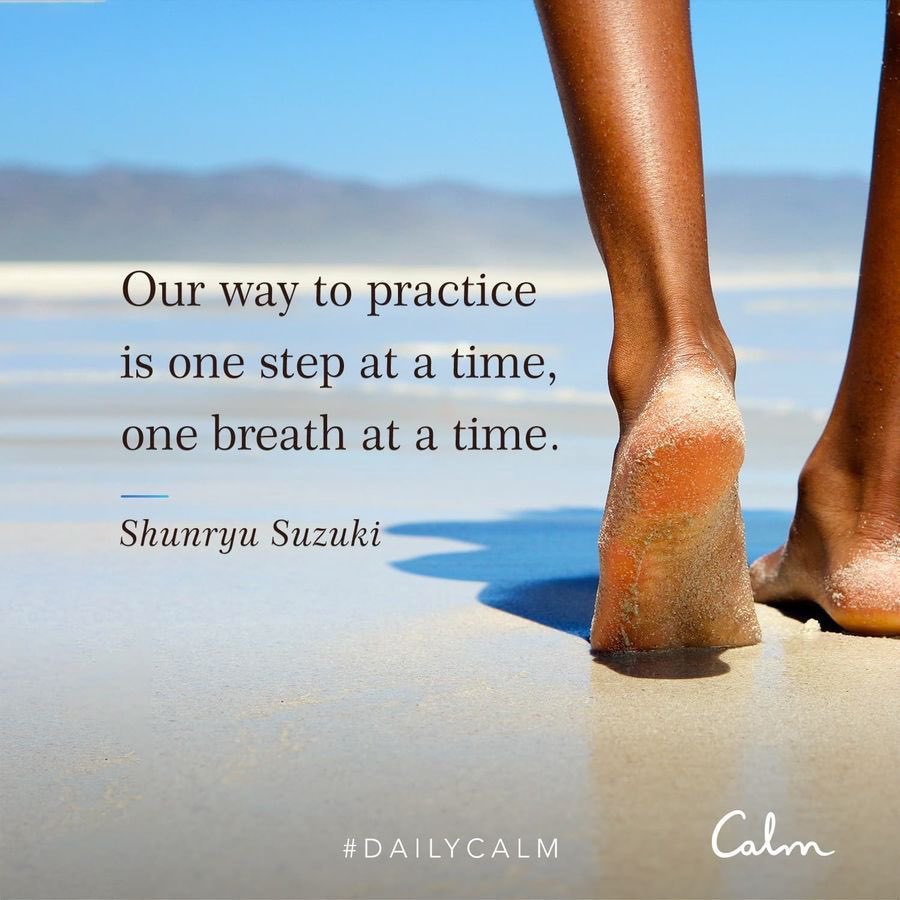
🎙 On Editing
Thoughts on the book On Writing, by Stephen King, and how it has affected my writing workflow.
Links
Final post from editing example image: 🌀 Not a comedian
🏀 Wow. What a great game to watch. Congratulations to Virginia for an amazing tournament and a fantastic win.
Gorgeous view of new life out the window

🧘🏻♂️ Substitute mind for body, and this feels exactly like my experience over the past few months. I have to get to know myself better and recognize which parts of myself are not actually myself and learn to deal with those. But gently.
From my Daily Calm

🔗 Not responsible
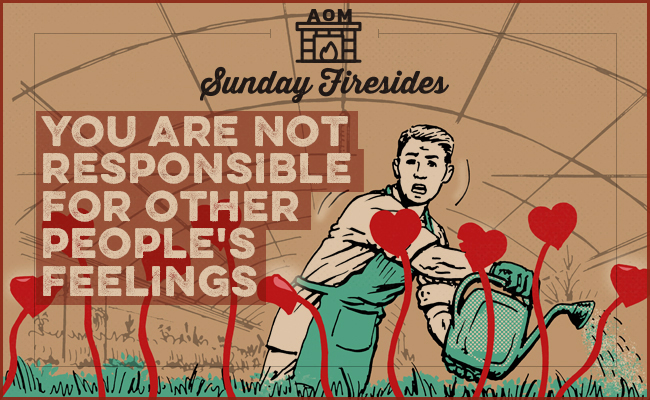
I loved this article from the Art of Manliness: Sunday Firesides: You Are Not Responsible for Other People’s Feelings
But when your decision doesn’t carry moral import, and you make it with all the politeness and respect possible, then you’re not responsible for how the other person deals with your choice. Whether they deal with it resiliently or not, rationally or not, generously or not, is up to them. You cannot control their reaction. And you cannot make your own decisions based on their expected response.
Coming to terms with unnecessary and unhealthy guilt has been a huge part of my mental health recovery process. It is vital to learn how to correctly identify your areas of responsibility and neither shirk nor stretch them.
📖 Keep Going
By Austin Kleon
Feeling so grateful to be watching #GeneralConference with my family. Always a weekend we look forward to.
🧘🏻♂️ This is exactly what I am seeking to attain in my life right now. It involves an acceptance of the chaos and noise that is daily life along with a gentleness and compassion for myself and others. It is elusive but worth the effort.
From my Daily Calm
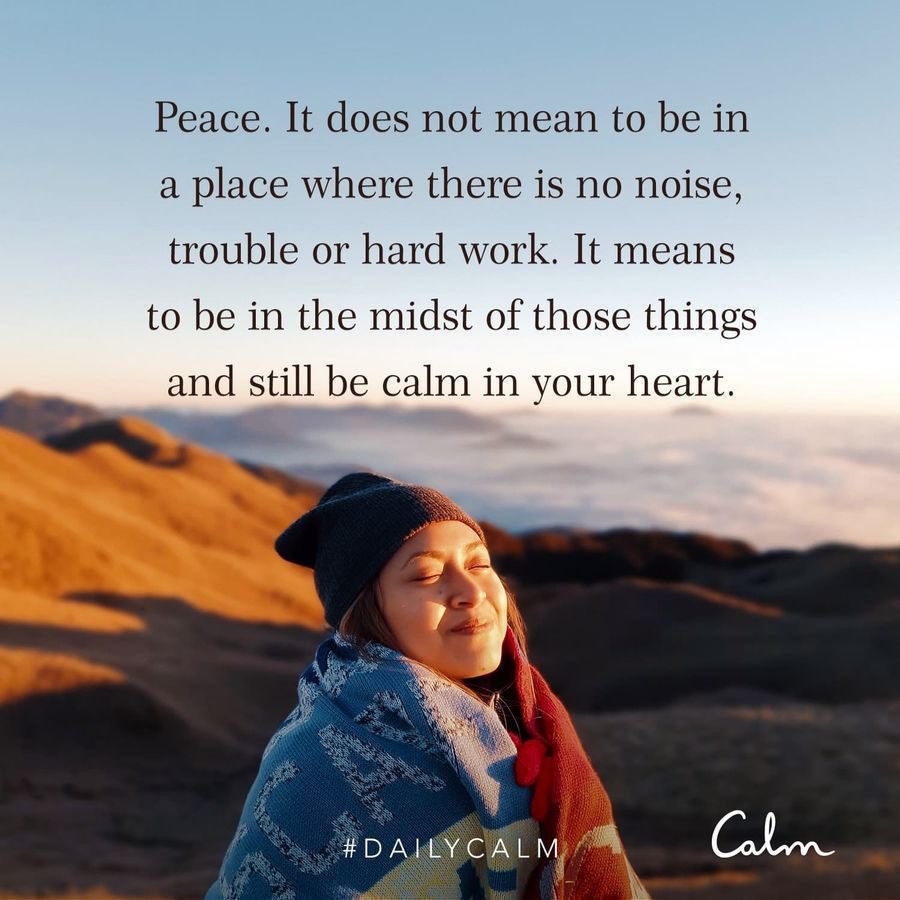
🧘🏻♂️ The best way I have found to combat worry and anxiety is to name it. When I call it out directly, I prevent the masquerade and am more able to let it slip away.
From my Daily Calm
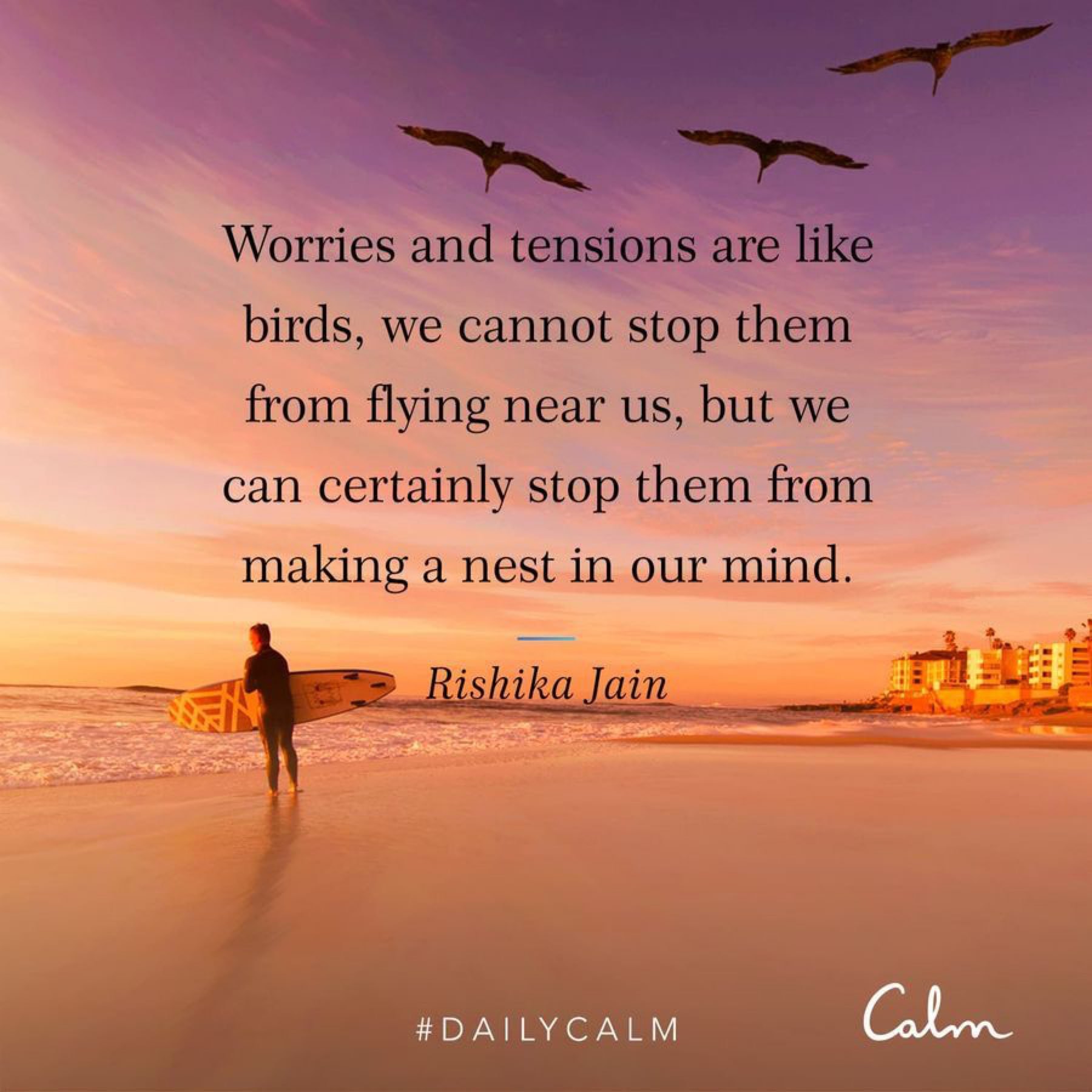
📖 The Elements of Style
By William Strunk Jr. and E.B. White
🧘🏻♂️ What a delightful meditation this morning. The focus was on learning to rest the brain. This is a skill that seems just out of reach but also desirable and valuable.
From my Daily Calm
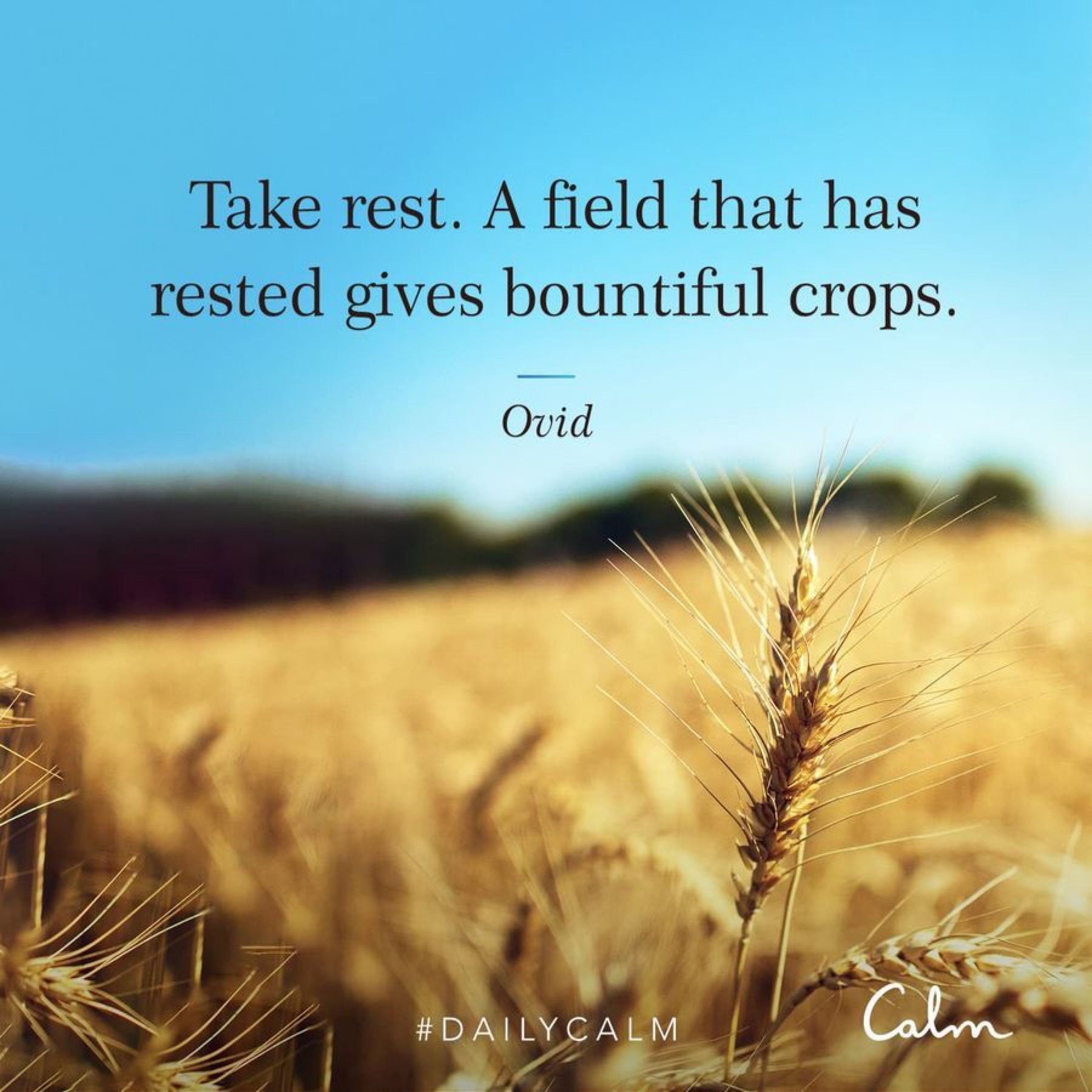
📝 An open letter to THWoD
My thoughts on and appreciation for the delightful podcast, The Hilarious World of Depression.
To John Moe and co.,
Thank you. The work you have done in creating and continuing THWoD is truly life-changing. I began dealing with mental health issues in the summer of 2018. I browsed the podcast directory in Overcast looking for comedy shows, and stumbled upon THWoD. Great job on the name by the way. I was drawn in, and all of my many recommendations have been met with a smile at hearing the name.
As I listened to guests share their stories with mental illness, I found validation. As you have mentioned many times, one of the problems with mental illness is that it convinces you that are you alone, a freak, an aberration. Hearing that others felt the same gave me a new level of self-compassion.
The more I listened and progressed in my journey, the more I wanted to share. I finally had the courage to write my own coming out story with mental illness. I found the fear my brain fed me at sharing the personal details of my life was a lie. I received an outpouring of love and compassion, and many people shared their mental health struggles with me.
I recently returned to work after a couple months off for a medical leave of absence. I have tried to share personal details of my struggles with people who ask why I was out. And I have found that those conversations result in the most meaningful and authentic bonding experiences I have had at work.
THWoD continues to be a major part of my life. I tell almost everyone it is my favorite podcast right now. My kids were intrigued and perplexed when I told them about it. “Uh, Dad, I don’t think depression is very hilarious…”
It is clear this is a labor of love. You truly care about what you are creating and the impact it has in the world. John, I’m sure that it takes a toll on you to invest yourself in connecting with the darkest parts of people’s lives. I want you to know what a difference the show has made for me.
Here are some of my favorite moments:
- Learning that good psychiatrists exist and are worth finding
- Discovering Fernando, my very own “Steve”
- Connecting with John Green and knowing he shared my diagnosis of OCD well before it came out in the interview
- Realizing how asinine it is to believe we do our best work while mentally tortured
- Accepting myself as I am without being a comedian
- Finishing all back episodes
Thank you again, and I wish you all the best as you continue your own mental health journey.

🌀 Not a comedian
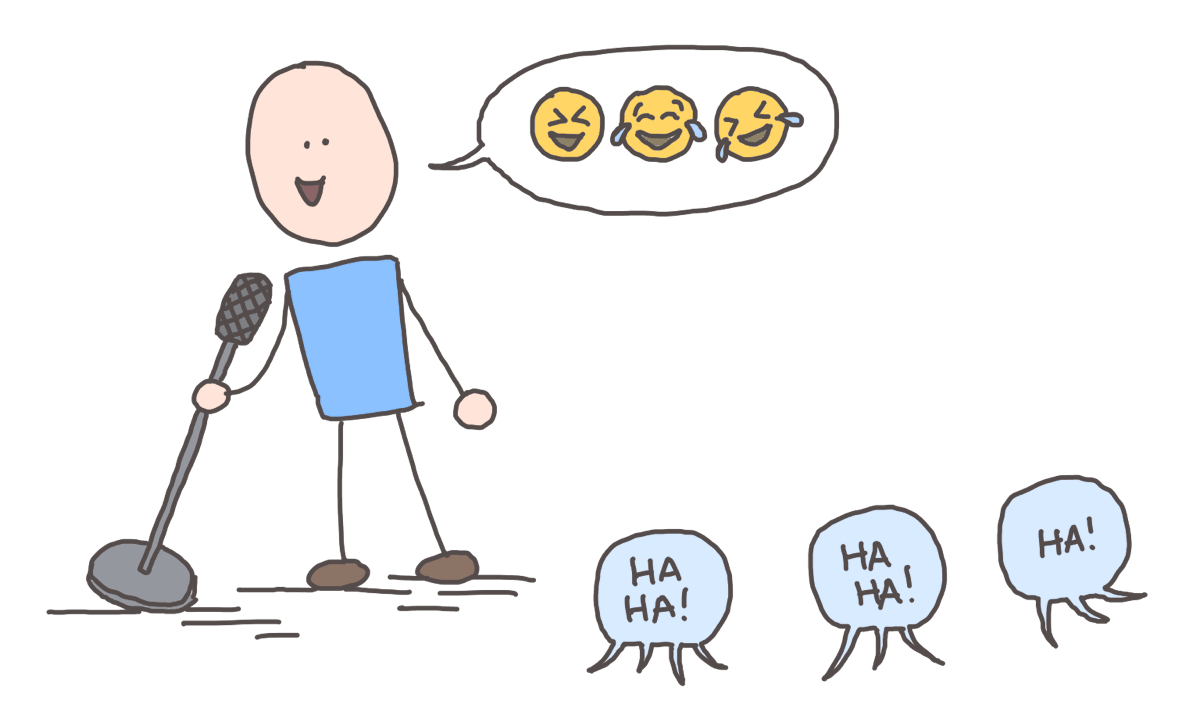
It’s ok that I’m not that funny. Just because I’ve listened to comedians on THWoD doesn’t mean I have to be one.
I’ve mentioned a few times, and will again, that my current favorite podcast is The Hilarious World of Depression. Many of the guests have been comedians and have talked about dealing with their mental health through comedy.
The more I listened to comedians grappling with their mental health, the more I thought I should become a comedian too. I even told my wife that was my new life plan—to do stand-up comedy. It seemed like the logical next step. There was only one problem.
I’m not that funny.
I can get some laughs occasionally. I teach at a programming boot camp, and I often say something that is funny enough for the students to laugh. And that feeling! When I say something that connects with people, something inside me is filled I didn’t know was empty.
At the same time, I recognize that I am not naturally funny. My wife is, however. Without much effort, she says and writes things that make people laugh. As a child, I was never particularly funny. I knew people who were, but I was never comfortable enough with myself for that kind of attention.
This doesn’t mean I won’t ever try stand-up. I’m intrigued by improv. There seem to be many associated benefits, and it is scary enough that I think I should give it a go.
The key has been coming to terms with myself as I am now and being content with that. I don’t have to reinvent myself. I also don’t need to hold myself back from exploring desires or dreams that I have. If I want to pursue comedy, I can. But I don’t have to in order to be happy with who I am. I am valuable just as I am right now.
Excited to be sporting my new pin from @THWofD. Definitely my favorite podcast right now.
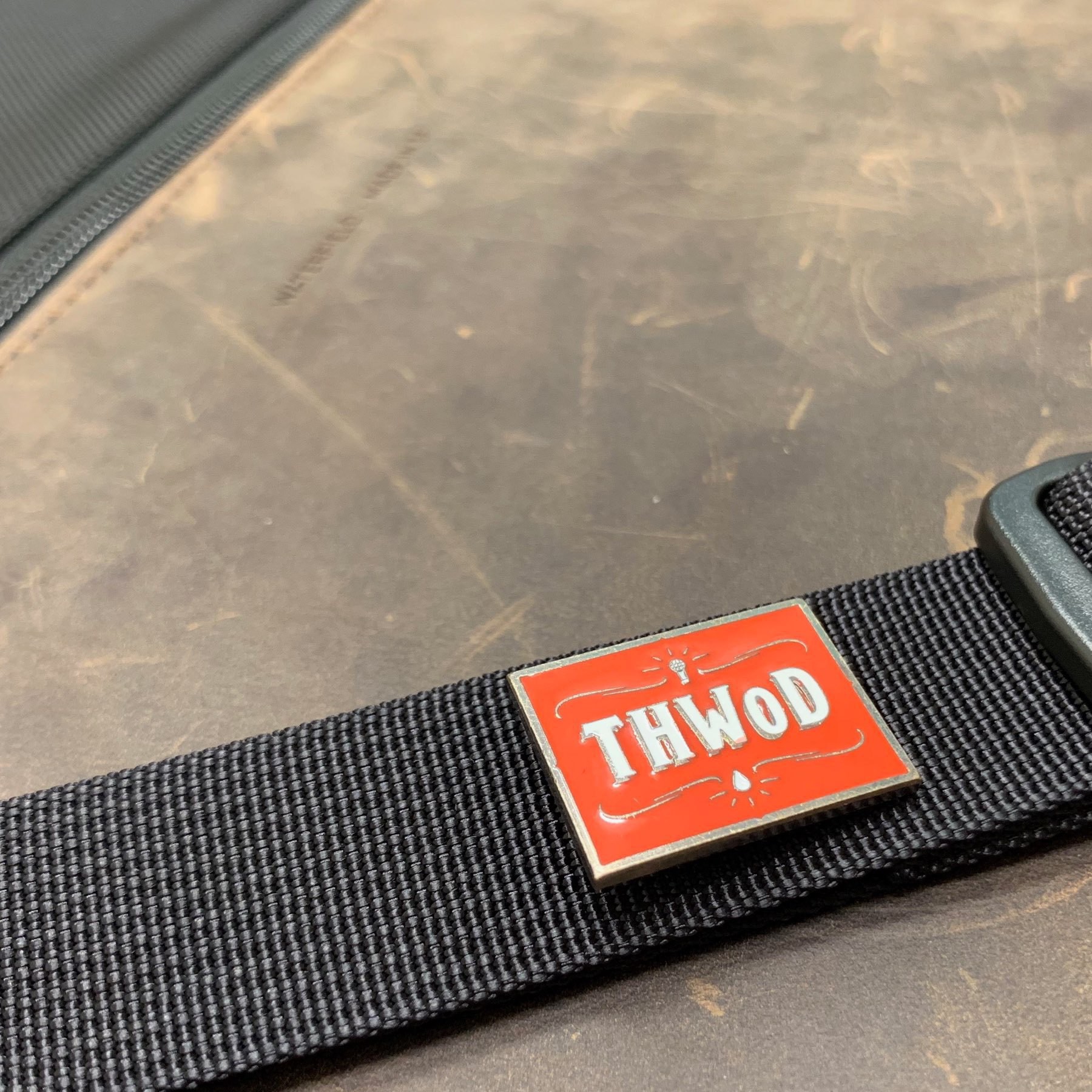
Came back home last night after a week away to focus on treatment. It was so rewarding to see how excited the kids were. “Are you staying home? You are?! Hooray!!”
🧘🏻♂️ Learning the skill of impulse control is essentially the work on my ERP treatment. OCD makes it challenging for me to even identify the urges that come as separate from my acting on them. But, as with most things, my skill increases with practice.
From my Daily Calm

🌀 Writing a series
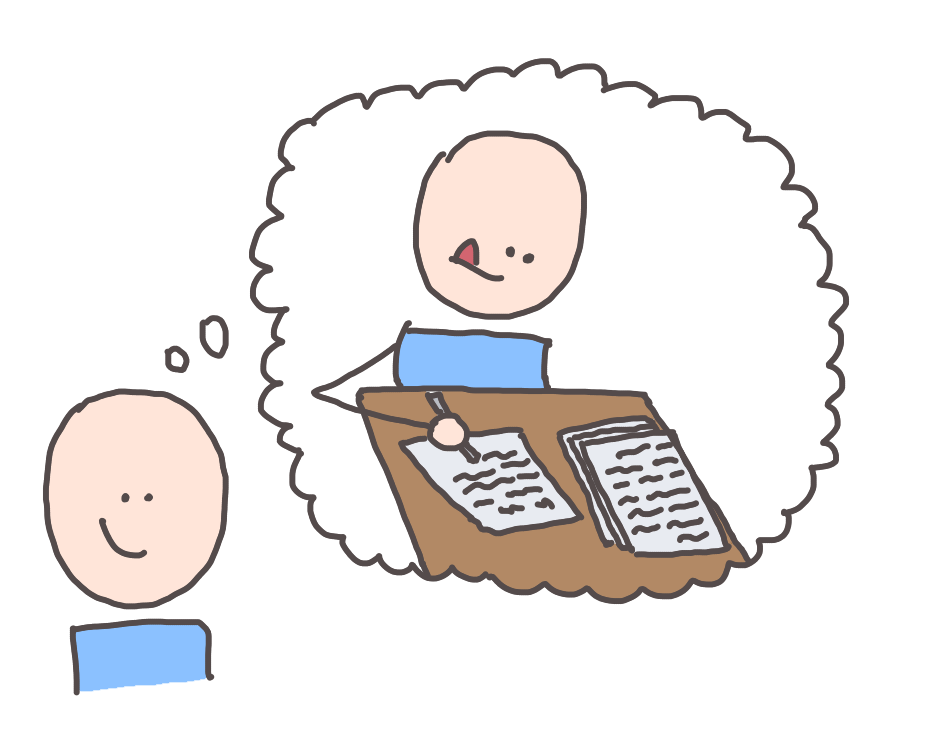
A few thoughts on the process and effects of writing my first series, “What mental illness feels like.”
As I shared in the conclusion of my overview of my series on mental illness, this was a learning exercise for me. This topic had been on my mind for a couple months. Part of the reason was to better understand my own experiences. In that sense, it was a resounding success.
Another big part of me hopes that this series can be helpful to someone. As I wrote a couple weeks ago, I have come to realize that I belong to a special society of sufferers, and our membership numbers at least in the millions. There are so many people who are struggling to cope with crushing despair at learning they have a mental illness. Amidst that despair is also hope. We can learn to live well, even with mental illness as our companion.
Part of the power of fright is the risk of the unknown. When a topic becomes off-limits to discuss or even consider, it gains influence and momentum in our lives. We need to tear open the shutters and let in some daylight to see what we are actually facing. Mental illness festers and strengthens in darkness. When we reveal it for what it really is, we come to see that, yes, it is scary, but it is also faceable. Just as the prophet-poet Isaiah said of the devil,
All they shall speak and say unto thee, Art thou also become weak as we? art thou become like unto us? How art thou fallen from heaven, O Lucifer, son of the morning! how art thou cut down to the ground, which didst weaken the nations! They that see thee shall narrowly look upon thee, and consider thee, saying, Is this the man that made the earth to tremble, that did shake kingdoms; That made the world as a wilderness, and destroyed the cities thereof?
As we become more comfortable talking about uncomfortable things, those topics can metamorphose. We will probably continue to handle them gently, but we can handle them. One of the first skills that mental illness often steals is that of self-compassion. And so we need to borrow and learn compassion from others.
I loved the experience of exploring a topic in great depth over a series of posts, and look forward to the opportunity to do it again. In the meantime, I plan to continue posting regularly about mental health (💮), as well as other thoughts and feelings I have. I would be thrilled to hear from you with suggestions for future series, or thoughts on what has been helpful for you, or just about anything else. You can reach me on Micro.blog as @bennorris, or email me at ben@bennorris.org.
📖 On Writing
By Stephen King
💮 I finished my series “What mental illness feels like” today, and posted an updated conclusion. This has been my best writing—maybe not the most well-written, but the most vulnerable and therapeutic. I hope it helps others face the horror of mental illness with less fear.
💮 What intrusive thoughts feel like
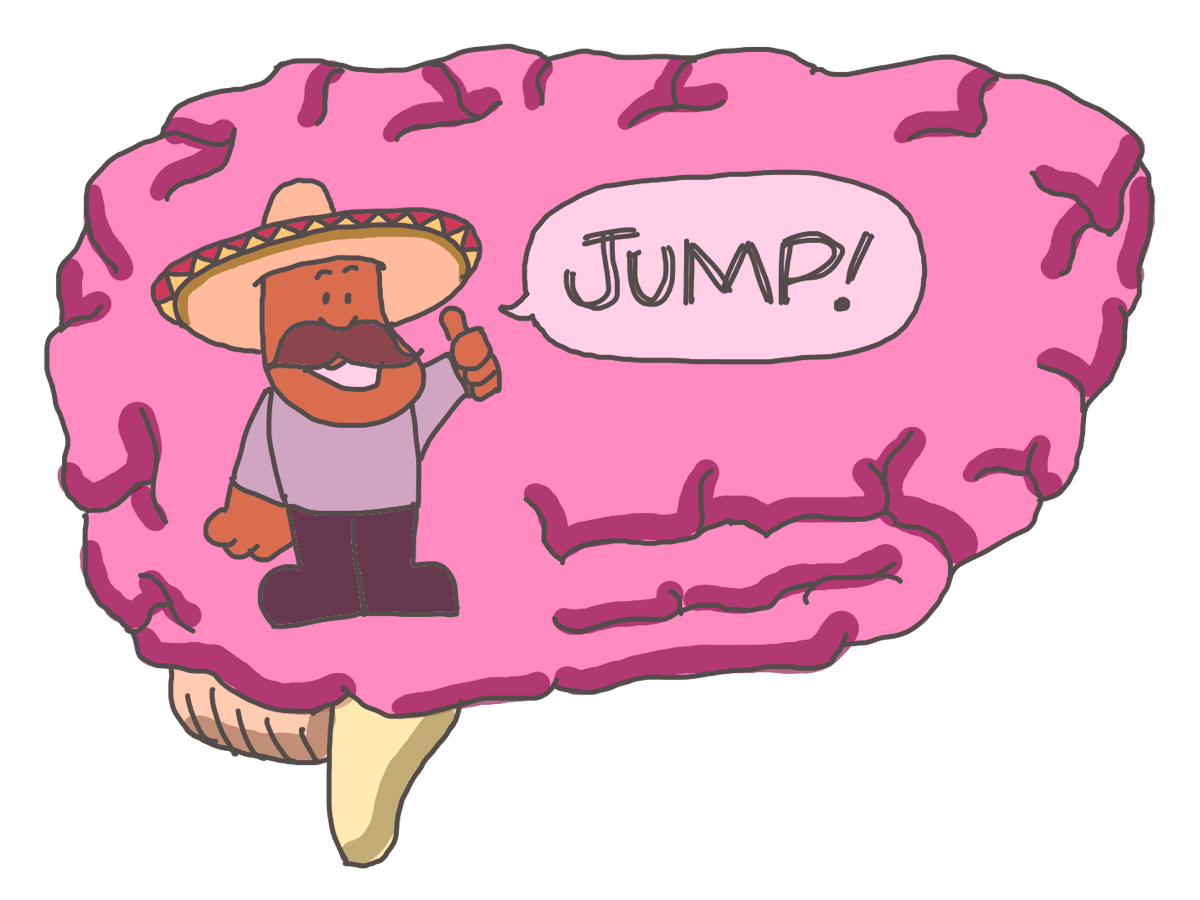
Having intrusive thoughts come in my mind is like having a terrible friend who keeps suggesting that I do ridiculous things. It can be hard at times to know who is speaking, but the more I get to know this friend, the better I can detect his voice.
Note: This is part of an ongoing series on what mental illness feels like for me. Read the introduction and associated disclaimers here.
I have lived with intrusive thoughts for most of my life. As I have learned more about mental illness, and specifically my diagnosis of OCD, I have come to realize that these intrusive thoughts are not normal. While most people will have bizarre thoughts come into their minds, they are usually able to shrug the thoughts off as strange and move on with their lives. For me, the thoughts are more persistent and visceral and often require great effort to resist.
Jumping for attention
There is a story from my youth that is both funny and sad, as so many things are. I am able to look back on it and laugh, even while I can see and feel the sorrow and pain it represented.
When I was in middle school, I decided that girls would like me more, or would at least give me more sympathy, if I was in a wheelchair. I came to the conclusion that I needed to break both legs for that to happen. I played the tuba in band, and I made plans to put my legs on the arm of the couch and smash the tuba through each of my shins. I remember so clearly thinking that the only hard thing would be doing the second leg after the first. I did not really consider how hard it would to come up with an explanation for the freak accident. I was the oldest child, and I asked my younger siblings what they would do if something happened to me while I was babysitting, and made sure they knew to call an ambulance.
I finally decided that the tuba was not the best option, and that instead I should jump off the roof. I thought and thought about it until I finally decided to act one day. I climbed up on the roof and jumped down to the ground while my younger siblings watched. The problem was, I could not force myself to keep my legs straight. I kept cushioning the impact. So I tried a number of times. I got it in my head that it would work better in the front yard instead of the back, so I moved there. The neighbors saw me and told my parents, and I got in big trouble. Somehow that story spread throughout my extended family, and I still get teased at times when we all get together for jumping off the roof. And I have to admit, it is pretty funny in a way.
Superpowers
Fortunately, my recent examples that involve violence to myself have all stayed at the thought stage. I have been able to resist them. I remember a few weeks ago going for a walk around the track on the upper floor of the local rec center. While I was walking, I had the clear thought come that I should jump over the railing down to the basketball courts below.
There was a big difference between my urge to jump as a teenager to get attention in a wheelchair, and my urge to jump off the track. This time, I saw myself jumping off and grabbing on to the back of a basketball hoop, and jumping horizontally between the backboard and the railing and the wall as I made my way down to the floor. It was so clear that I would be able to move just like Spider-Man.
Finding a name
The Hilarious World of Depression is one of my favorite podcasts lately. There was an episode where they asked listeners to describe ways in which they imagined their depression. One woman said that she given a name to her depression: Steve. This makes it much easier to respond to difficult thoughts, “No, Steve! That’s a ridiculous, horrible idea.” 1
While I was on a trip recently with my brother in Mexico, I was telling him about Steve, and that I had been thinking of something similar, but did not have a name yet. He suggested Fernando (make sure to roll and exaggerate the “r” and try for a good Mexican accent), and I laughed out loud. It felt like the perfect name because every time I say it or think it, I chuckle a little.
When my brother suggested the name, we were walking around the San Carlos bay, on the edge of the pier. It was so timely to get a name for my intrusive thoughts. I told him that I knew it was right, because I was using it that very moment. “No, Fernando, I should not push my brother into the water. That is a horrible idea!” He laughed and laughed and was glad that I was resisting that particularly intrusive thought.
Don’t feed the bears
One of the challenges of having intrusive thoughts is that they are often reprehensible and cause a powerful reaction. If I am not careful, the way in which I respond to them strengthens the power that they have over my mind. I am learning to be more mindful as they come; notice them, acknowledge them, and then realize that I do not have to feed them. I can just turn away and keep living my life.
-
As I was researching the link for this episode, I found that the story was actually a reference to a previous episode that I had not yet heard. I had the treat of finding and listening to the original story of Steve in this episode. I even discovered that the woman in the episode, Bri Traquair, has OCD and came up with Steve as a way to deal with her intrusive thoughts. ↩︎
💮 What OCD feels like
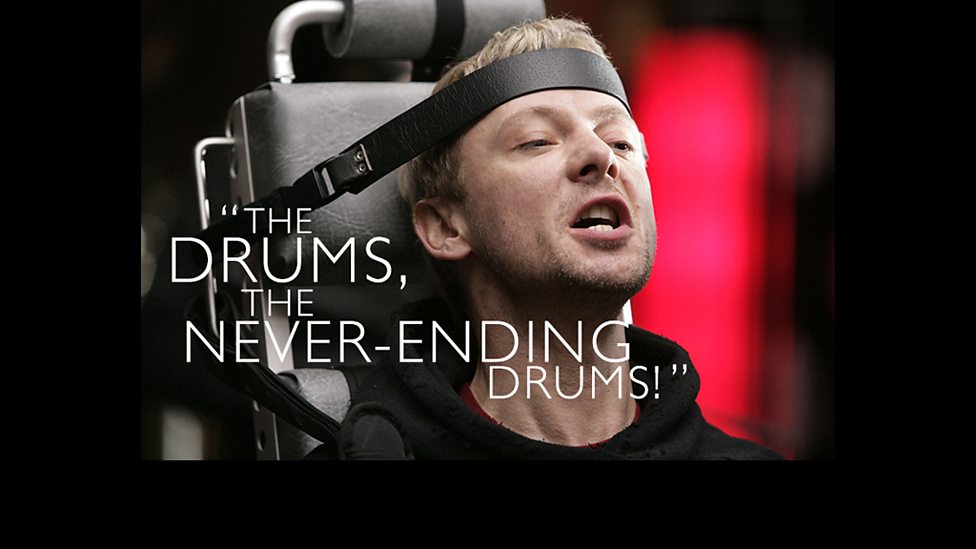
Dealing with OCD is similar to how I imagine the Master’s experience in Dr. Who. The sound of drums is always present, although they may be soft at times and deafening at others.
Note: This is part of an ongoing series on what mental illness feels like for me. Read the introduction and associated disclaimers here.
In many ways, obsessive-compulsive disorder is the root of all of my mental illness, and is a topic that I expect to revisit many times. When I wrote my coming out story, I identified myself as someone with OCD. This does not define me, but it is also an integral part of who I am. I have mentioned previously that I am undergoing treatment at the OCD & Anxiety Treatment Center, which has been a fantastic experience. I wanted to capture some of my thoughts around my OCD near the beginning of my treatment, as I am sure that my perspective will change over time.
Buying a bag
A recent example serves as a good illustration of how I view my OCD, and the effect it has on me. A couple months ago, I wrote “Splurging on Patagonia gear”, in which I described my experience revamping my wardrobe. Part of the impetus of that change was considering traveling and wanting to be able to travel even lighter. I took a trip with my brother down to Mexico, and packed everything in a 21L backpack from Minaal, which I loved. But while I was there, I wished at times to have a larger bag to just throw things in as I changed rooms, or to transport without packing everything carefully. I found a bag online that looked like the ideal fit for me: the Patagonia Lightweight Black Hole® Duffel 30L.

I have a real weakness for bags in general, and especially bags that can become small and pack in on themselves. This seemed perfect because it could be extremely small, even to where I thought I could fit it in my backpack when it was collapsed.
When I returned from my trip to Mexico, this bag started to dominate my thoughts. I had already considered it for hours, finding the right bag online and looking at the specs and watching the product videos. Part of my issue was that I had no travel plans in the near future, so there was not really a reason to get the bag anytime soon. But it would not leave my mind. On some days, I would think about it occasionally, and on other days, I had a hard time thinking of anything else. If my mind was not actively engaged in something, it would slip back to this bag.
Part of the struggle was that I had a plan to buy it. After shopping at REI, I had a members coupon to redeem at a certain date. I decided to use that to buy my bag when the time came. But on the day my coupon became valid, I found that they did not carry the bag I wanted. So for three days or so, I agonized over what to do. Finally, I decided that I had suffered long enough and I wanted relief and I ordered the bag straight from Patagonia. When it arrived, I found that it was actually bigger than I expected, and I am not sure if it will fit in my backpack. But I have already used it a couple of times and feel no buyer’s remorse.
Everyday OCD
The example with the bag is a little dramatic, and one that lasted much longer than most of my obsessions. My more nuanced diagnosis is Scrupulosity OCD, which feels like a fancy word for perfectionism. In many cases, including mine, scrupulosity includes a religious component, where your mind is convinced that you are offending God through many of your actions.
One of the real challenges with having this diagnosis is that it does not look like media-portrayed OCD. I do not have to flip the lights on and off a certain number of times, or wash my hands constantly throughout the day. (Although, to be honest, if I get something on my hands, I am often paralyzed and hold them suspended in front of me until I can wash so that I do not destroy anything.) What made this hard was that a number of mental health professionals with whom I met told me that I did not have OCD. One thing my brain craves is certainty, and so to not even know my diagnosis was excruciating.
In practical terms, my OCD most often manifests with my family. I spent my whole childhood anticipating two things: serving a religious service mission for my church, The Church of Jesus Christ of Latter-day Saints, and becoming a father. I read books and articles and prepared constantly. When I became a father, I found it was very different than I had imagined. The biggest difference was that I was not perfect at it. I frequently lost my temper, or failed to live up to some unrealistic ideal I had created for myself. And as a result, I would constantly punish myself emotionally. One time when we had three children, ages five, three, and two, I wrote in my journal that while I had sired children, I had yet to become a true father.
Over the course of the summer of 2018, my symptoms escalated to the point where I realized that I needed to seek help. This manifested most clearly in interactions with my wife, and sometimes my children. My emotions were very close to the surface, and when I perceived that I was failing, or disappointing them, it would often trigger a physical panic attack. It escalated to the point where I admitted myself to the hospital for a night. It was as if the drums had finally become too loud and too persistent to handle.
Fortunately, through medication and treatment, I am beginning to experience relief from my symptoms. I am learning what it will mean to live with OCD for the rest of my life. There are days when that realization is a crushing blow. But then I remember that I have already been living with it for practically my whole life. Now I will finally have some tools to manage it.
📖 Show Your Work
By Austin Kleon
🧘🏻♂️ This requires courage. But the rewards are so fulfilling and uplifting. Many of the things I need to leave behind are in my own mind. And great peace awaits as I do.
From my Daily Calm

